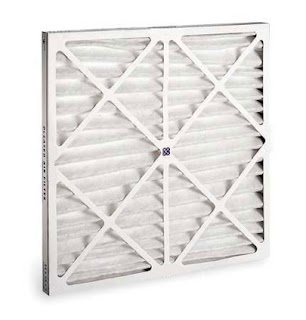We've caught you grinning, we caught you! So you found it a bit hilarious why did we find the need to talk about Furnace filters when they're just one of the cheapest accessory out there? Little things matter dude! And we'll prove it to you. Keep on reading.
No matter which brand's Furnace you've at your home, how did it cost you or how does it look like. It does need Filters, doesn't it? And Filters need to be changed for the appropriate functioning of the systems don't they? If somebody has never told you that choosing the right Furnace filters does affect the heating efficiency, we will! So, man! No need to laugh!
We're helping you explore the different types of Furnace filters, their pros and the cons so that you could decide easily which one will work best for you. Let's begin the filter journey;
1. Disposable Fibreglass Filters
These are the filters that most homeowners use. This was the filter that came to your mind when we initially talked about Furnace Filters. Made up of thick Fibreglass of around 1 inch this type of Filters have a MERV rating of 2-3 which means they can help trap
Carpet Fibers
Textile Fibers
Dust Mites
Spray Paint Dust etc
Good of it:
The good aspect of these Furnace filters is that they're extremely cheap. Just $1 - $2 .
Bad of it:
The bad side of these Furnace filters is that they do not help clean the air much. Their MERV rating as mentioned above is very low. So these filters are surely not suitable for those having allergies and asthma etc. They better go for Filters that efficiently trap pollutants.
2. Disposable Pleated
Looking for a better MERV rating Filter? Check this one out. The disposable pleated filters are made up of polyester or cotton paper. Their MERV rating is 6 which is far better than the MERV rating of Disposable glass filters. The price of Disposable pleated filters is usually $4- $5. Affordable!
Good of it:
The good side of these Filters like the Disposable Fibreglass filters is that they're inexpensive and are good at trapping small particles.
Bad of it:
While these Filters are made up of cotton paper or polyester, they're thick and can cause hindrance for the air flow, consequently taking more energy from the system
3. Disposable Electrostatic Filters
These filters are self-charging and have a very high MERV rating of 10. They are also good at trapping small particles, pet dander, milled flour, welding fumes etc. The cost of these Filters is $10
Good of it:
The good of Disposable Electrostatic Filters is their affordability plus efficiency which makes them ideal for homes with children and pets.
Bad of it:
Disposable Electrostatic Filters become expensive when it comes to purchasing them in custom sizes. If your affordability is low, better not choose them since they cost much on the replacement.
4. Permanent Electrostatic Filters
These filters also contain self-charging cotton fibres that pull particles and trap them. There's a machine washable filter that has a lifetime of 6-8 years. The MERV rating of these filters is 8 while the cost is $15-$20. For you, if your pocket allows.
Good of it:
These filters being permanent can be used for a long term so there's a relief from spending on Filters every now and then. With a good MERV rating of 8, they trap enough particles so as to do air cleaning too.
Bad of it:
The bad side of these Filters is that they're not as efficient as the Disposable Electrostatic Filters since their MERV rating is 8 while the MERV rating of Disposable electrostatic is 10. The custom sizes are very expensive which makes them unsuitable for those looking for low rate but high-efficiency Filters.
5. High-Efficiency Pleated Filters
Ready to spend extravagantly? Want to have highly efficient Filters? Then here you go! High-Efficiency Pleated Filters are for you if you can spend $100 for purchasing a Filter that will give you clean air with a MERV rating of 14-16 which means they'll also trap bacterias. These filters are ideal for those having allergies and bacterial infections.
Good of it:
The good is their high MERV rating, This is why they're also used in hospitals in order to trap the smallest of particles.
Bad of it:
Their heavy cost is their only bad side. Only a single filter will cost $100 a year which doesn't sound much cool.
So, we're just done with some quick information on the types, efficiency and rates of Furnace Filters in order to help you decide which one might work best for you. Your turn now. Any questions? Help? Or anything else? Get in touch. Give us a call!






0 comments:
Post a Comment